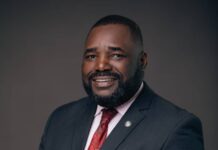*EU FUNDED PROJECT COMMITS TO WORKING WITH GOVERNMENT TO STRENGTHEN RESPECT FOR ENVIRONMENTAL RIGHTS*
Lusaka, Monday (April 29, 2024)
MEDIA STATEMENT
Strengthening the Respect for Environmental Rights in Zambia (SR4ER) Project Manager under Hivos, Raymond Kaima, says the European Union funded project will work closely with Government to strengthen the capacity of communities for them to demand for Environmental Rights.
Mr. Kaima said his Project cuts across water, air, land and other Environmental sectors.
This came to light during the launch of a three year project from 2024 to 2026 ‘Strengthening the Respect for Environmental Rights in Zambia’ (SR4ER) funded by the European Union (EU) to be implemented by Hivos, the Centre for Environment Justice (CEJ), and the Zambia Institute for Environmental Management (ZIEM).
Mr. Kaima said the project will be implemented in Lusaka, Kabwe, Serenje, Sinazongwe, Kitwe, Mufulira and will cater for other emerging areas that will come out.
“For instance, if there is an environmental issue that might come up in a district not covered by the project, we might go there and get a gist of it. We have specific outcomes which the project wants to achieve throughout the duration. We intend to have engagements with Right Holders.
These are individuals, community members, traditional leaders, paralegals, community based Organisations, faith based Organisations and various civil society organizations. We value and understand the experience that you have in engaging with various duty bearers, Government agencies and building networks which we want to tap into so that we are able, together, bring about a cadre of citizens who are able to exercise their Environmental Rights. We are gathered here to start to build networks, synergies and linkages which we can all foster together and make a cluster that can help us to demand for Environmental Rights from different Government agencies and other stakeholders,” he said.
The Project Manager said the Environmental knowledge that is going to be imparted is one that will make community members, Right Holders, to be able to exercise their rights on their own, than civil society organisations speaking on their behalf.
“On the other hand, we want to work closely with various Government department. Present here we have the judiciary, ZEMA, WARMA and other Agencies. We understand that as Government agencies, you have mandates within your respective Ministries and you have policies that are guiding how we will exercise that. How then do we civil society organisations come in to help strengthen that capacity or how do we come in to help work together so that we can empower Communities that we are going to work with. Therefore, we shall work closely with Government departments to strengthen the capacity of communities together as a consortium. We are also looking at enhancing space for dialogue. We call this meeting as one of the dialogues. It is my sincere hope that at the end of the day, we are going to have some minutes to network, build linkages and discuss. Beyond such interventions, we are going to have a number of activities, some of them which have been going on already,” he said.
Mr. Kaima said the project will support various Environmental caucuses such as the Environmental Protection Dialogue (EPD), the Mining Indaba and the Forest Indaba.
“We are going to engage ourselves in those platforms for us to increase the demand for such spaces to increase dialogues with civil society organisations, Government and produce deliverables. We are also going to look at how strong are these policies? Are there any gaps that required? Few days ago, the Ministry of Green Economy and Environment launched a Green Growth Strategy. How do we make linkages to that? How do we work around the 8th National Development Plan?” he asked.
The Environment Expert said the project will also work on a Media Engagement Strategy to build a cadre of journalists that will be able to report effectively on Environment news.
“We will come up with a Media Fellowship, Media Awards. We want when journalists report on a bridge washed away somewhere, they can connect it to the Environment or climate change. The other aspect we are also developing is the advocacy and engagement strategy or advocacy plan. This is where we need combined efforts of various civil society organizations. For example, the issue of setting up an Environmental Court. This requires consensus from civil society organisations and other stakeholders. How do we come together to build up a strong mass or voice so that when we approach Government, we speak with one voice. We are going to work with 17 duty bearers such as ZEMA, WARMA, Judiciary, Law Association of Zambia, Legal Reform and Legal Aid to advocate for legal reforms,” he said.
*CEJ COMMUNICATIONS UNIT*
READ MORE















